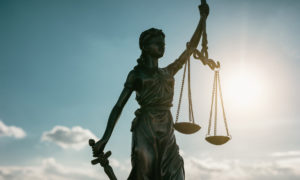
Law is a systematic system of laws developed and enforced by governmental or communal institutions to control behaviour, with its exact definition a subject of long-standing debate. In common use, it is usually defined as an ethical code that governs the conduct of social life, a body of rules governing the interaction of people at a societal level. It has often been differentially defined as the art and science of legality.
The core meaning of the word is ‘to govern’. However, in common usage it means ‘to establish or regulate’. Thus, in a country where there is a common law system, the government establishes and implements laws that bind its subjects. In countries without a common law system, the government usually appoints a court as the only institution that can make laws for the people. In the Islamic context, both the government and the courts are considering to be part of the same system, as all laws are derived from Islamic texts and can be enforced by the same authority.
In the United States; both state and federal governments are part of a common law system. While state governments generally have exclusive jurisdiction over state matters, the federal government grants franchises to corporations and other associations for the execution of civil law. The federal system is highly complicated, involving hundreds of judges, lawyers, magistrates, and others. It is highly structured and the complexity was noted by John Adams when he said that the federal government could not long depend on the administration of the courts for its laws. This criticism was later ignored by the framers of the US constitution, who included a statement of faith that the US would govern by laws that were guaranteed to be binding on the states.
In many ways, the legal system of the United States is very similar to that of the UK; Many US states have common-law courts, whose jurisdiction is limited to specific matters of federal concern. Common-law courts make decisions that are not covered by the federal system and such decisions are usually referred to as nullities. Because of their nature, many laws have been consolidated by the courts into larger cases known as suits.
The major difference between the civil society and the legal system; is that the former has the power to set the rules and make decisions independent of the legal system. For instance, the supreme court has great power in deciding what laws must be applicable across the states. It does not refer to any bodies of authority or set of principles for resolving disputes between individuals. The civil society on the other hand has no such power, nor is it required to refer to any authoritative body for resolving disputes. Furthermore, the institutional arrangement of the United States leaves much room for informal resolutions of disputes, which are often seen as parallel to the formal legal process.
- There are two major types of law in the United States, criminal law and civil law.
- Criminal law involves offenses against the state and society, while civil law deals with things like property law, divorce law, and personal injury law.
- People who commit crimes are dealt with by the criminal justice system to those who are victims of crimes can pursue a civil law case against the offenders.
- Unlike the criminal justice system, the civil justice system does not have the power to punish people for acts that were committed within the ambit of state jurisdiction.
- These differences between criminal and civil law to make the field of criminal law a highly complex area of study.



